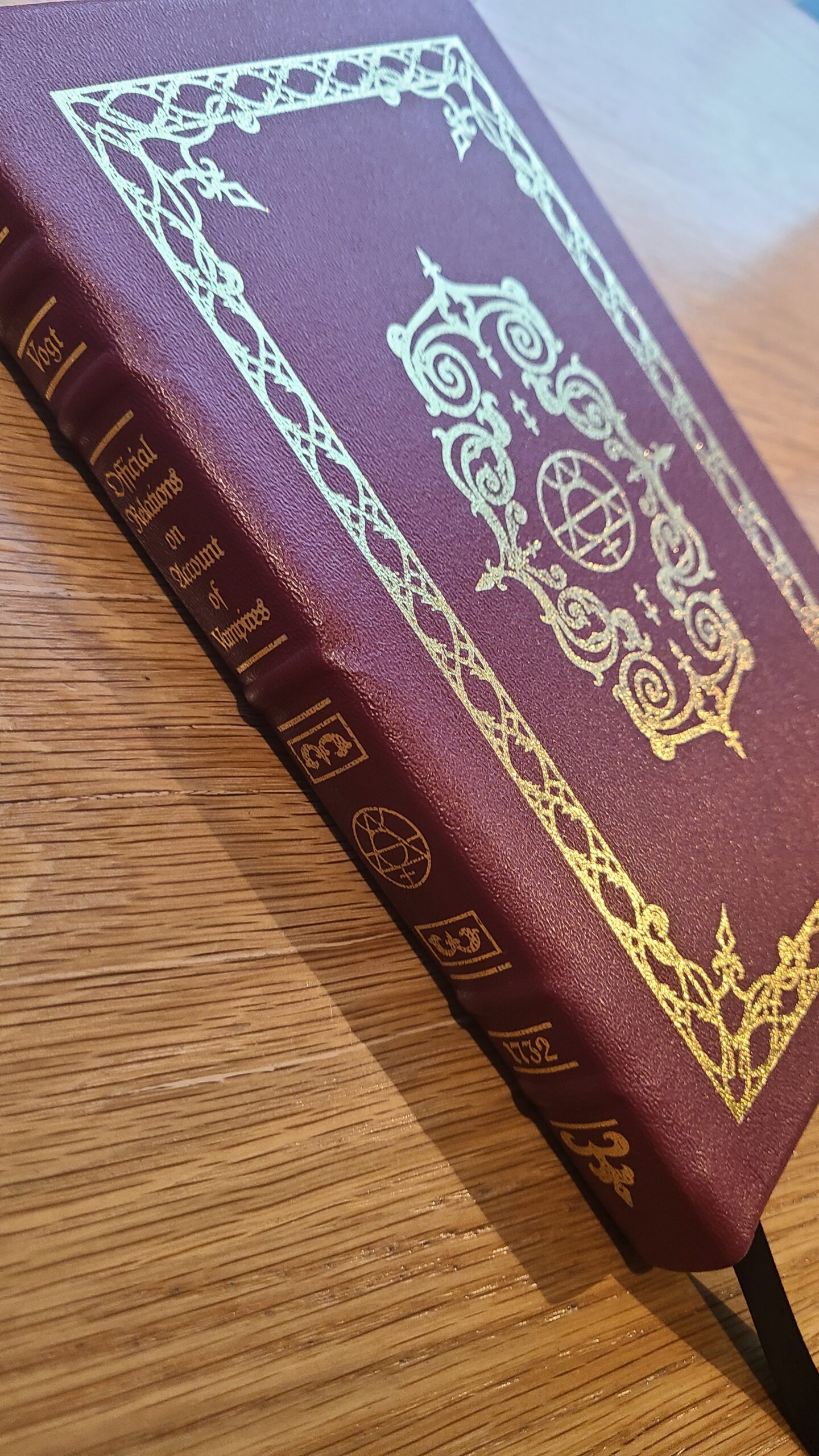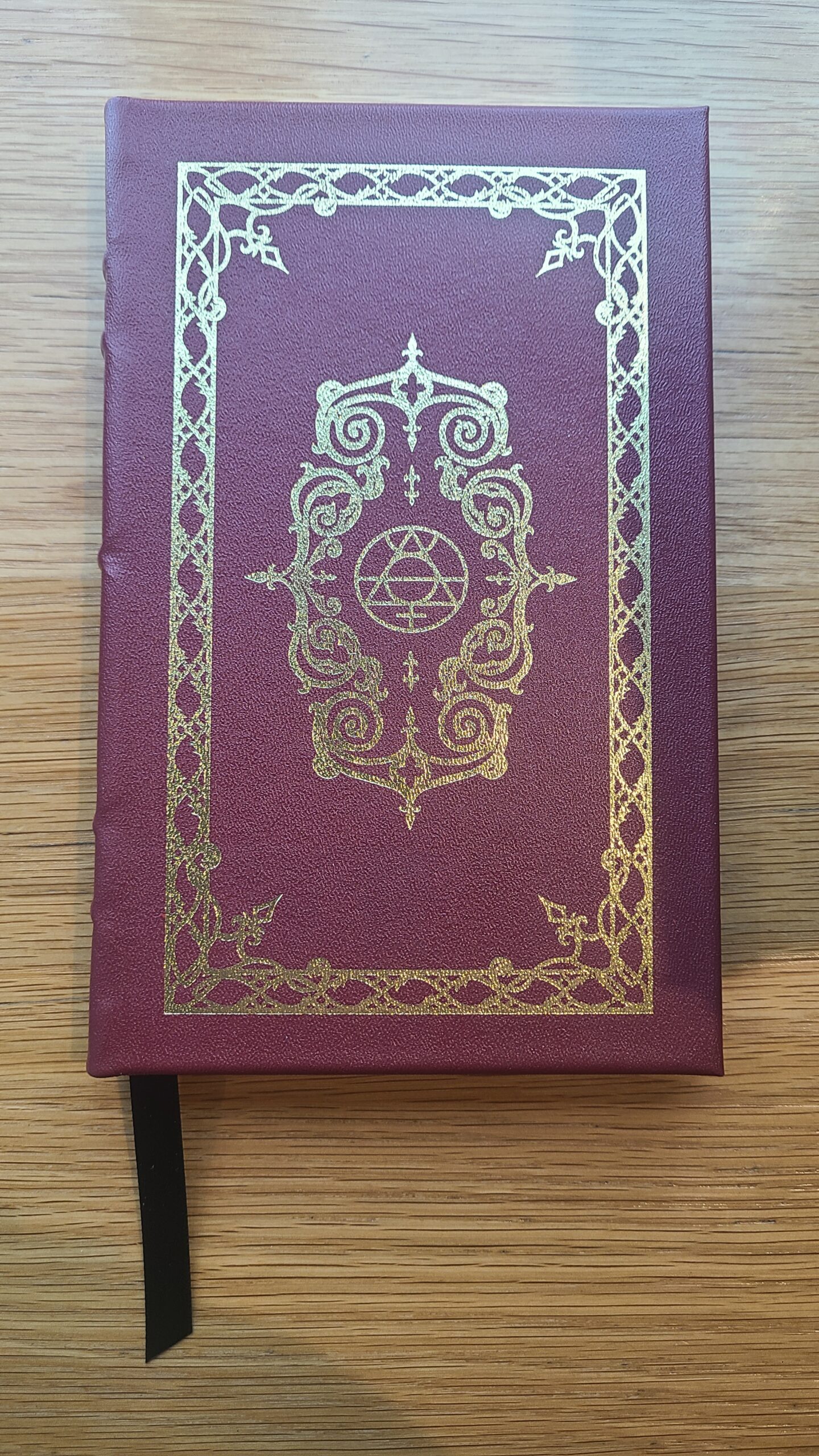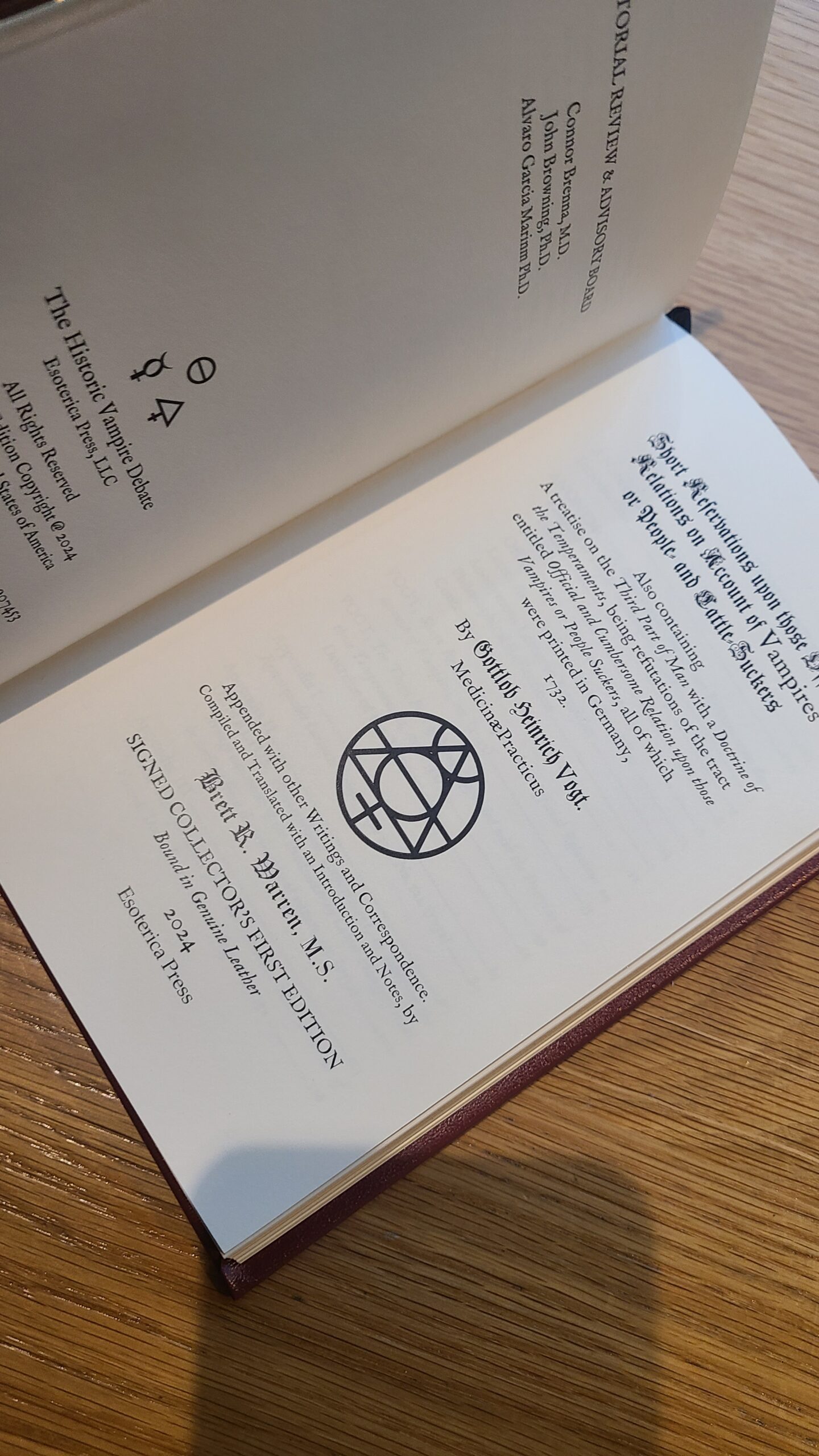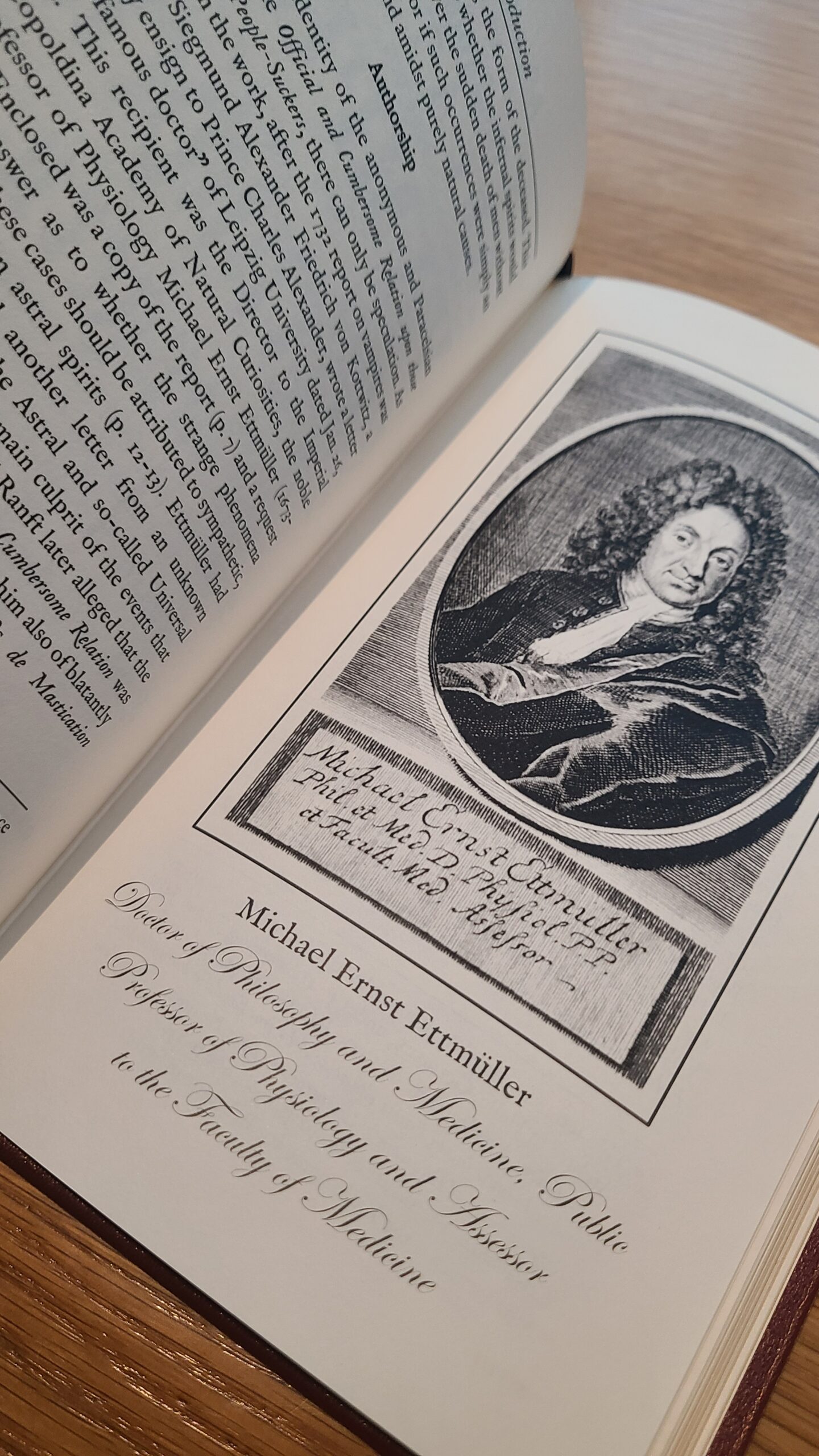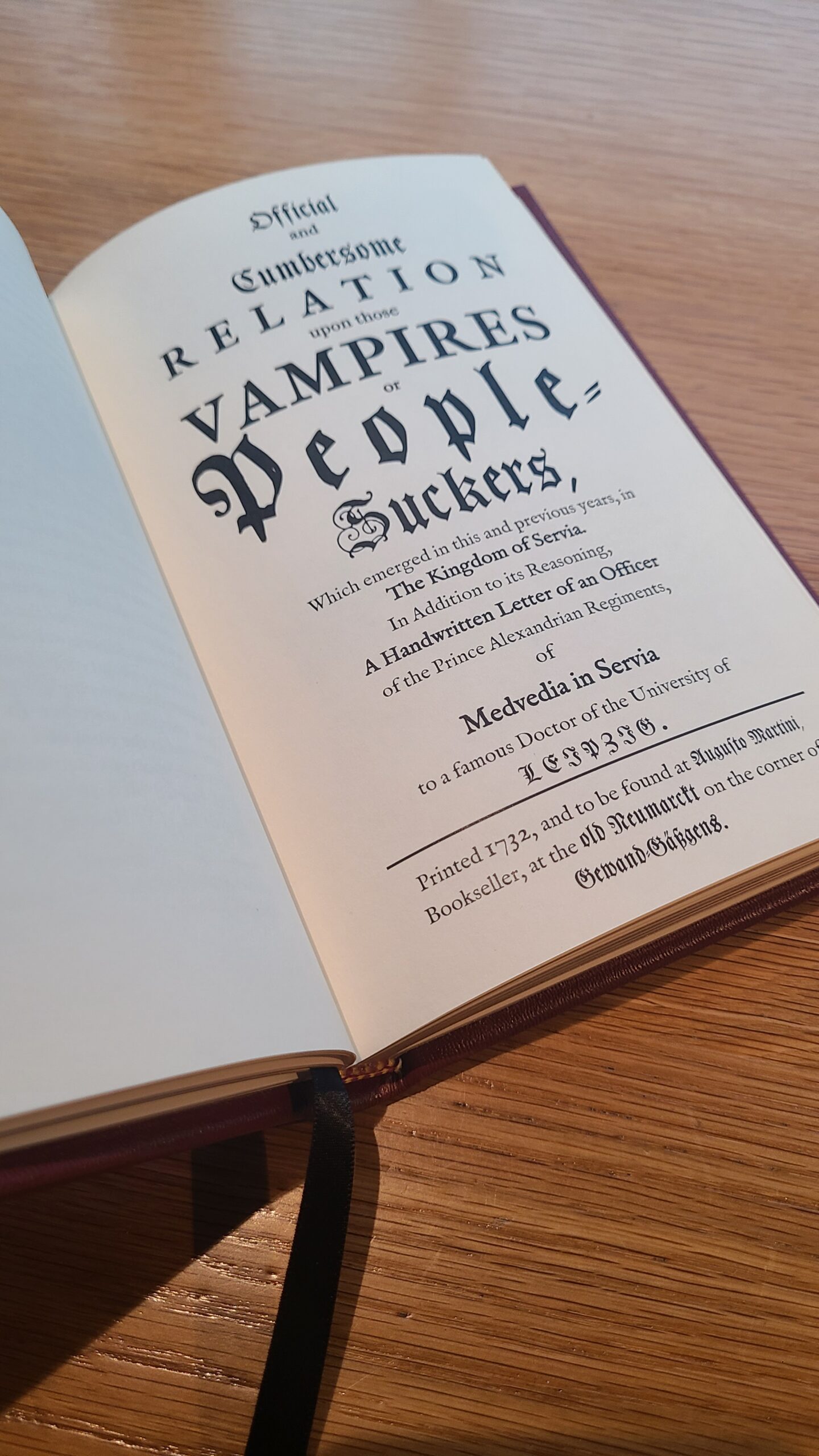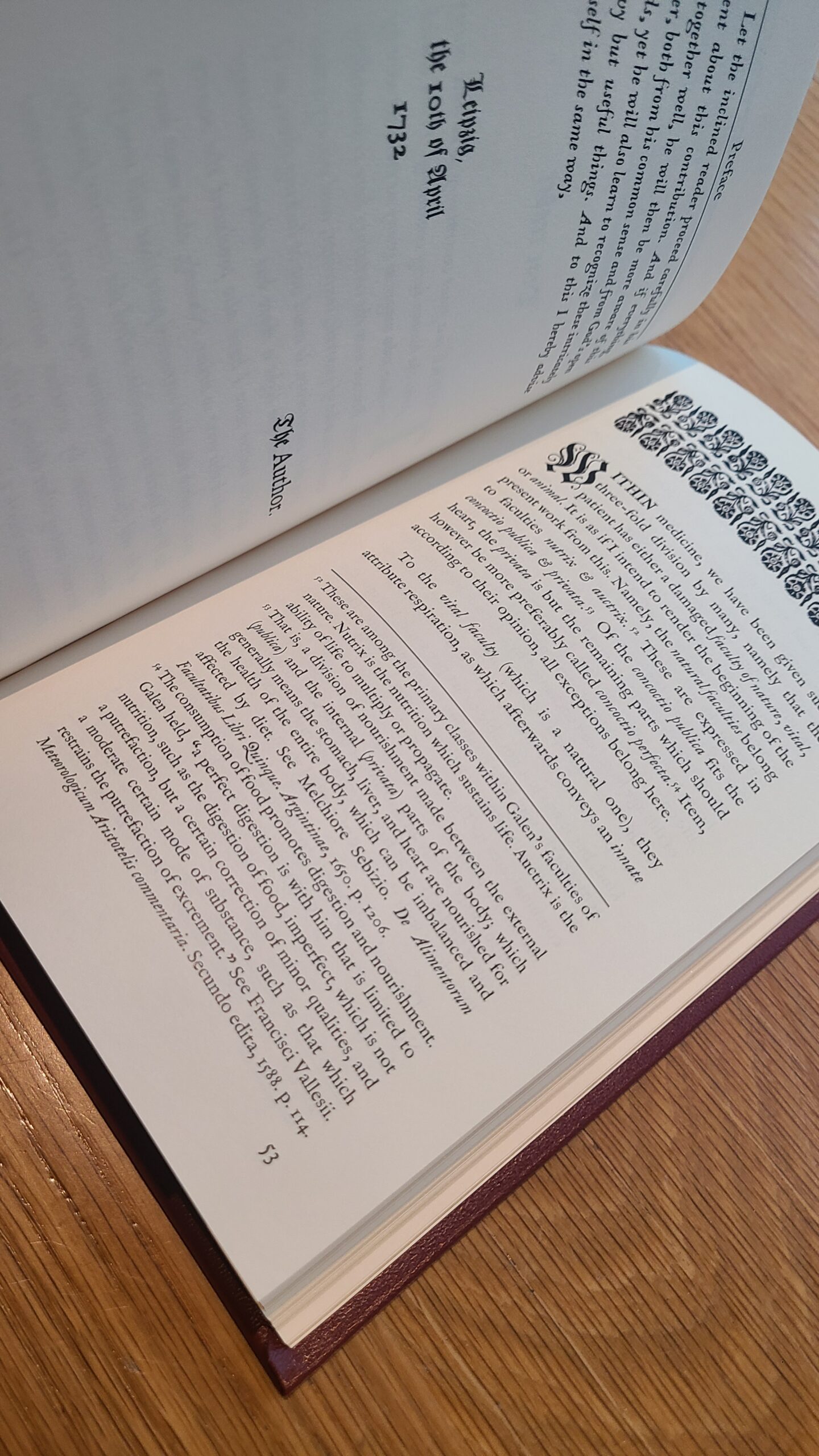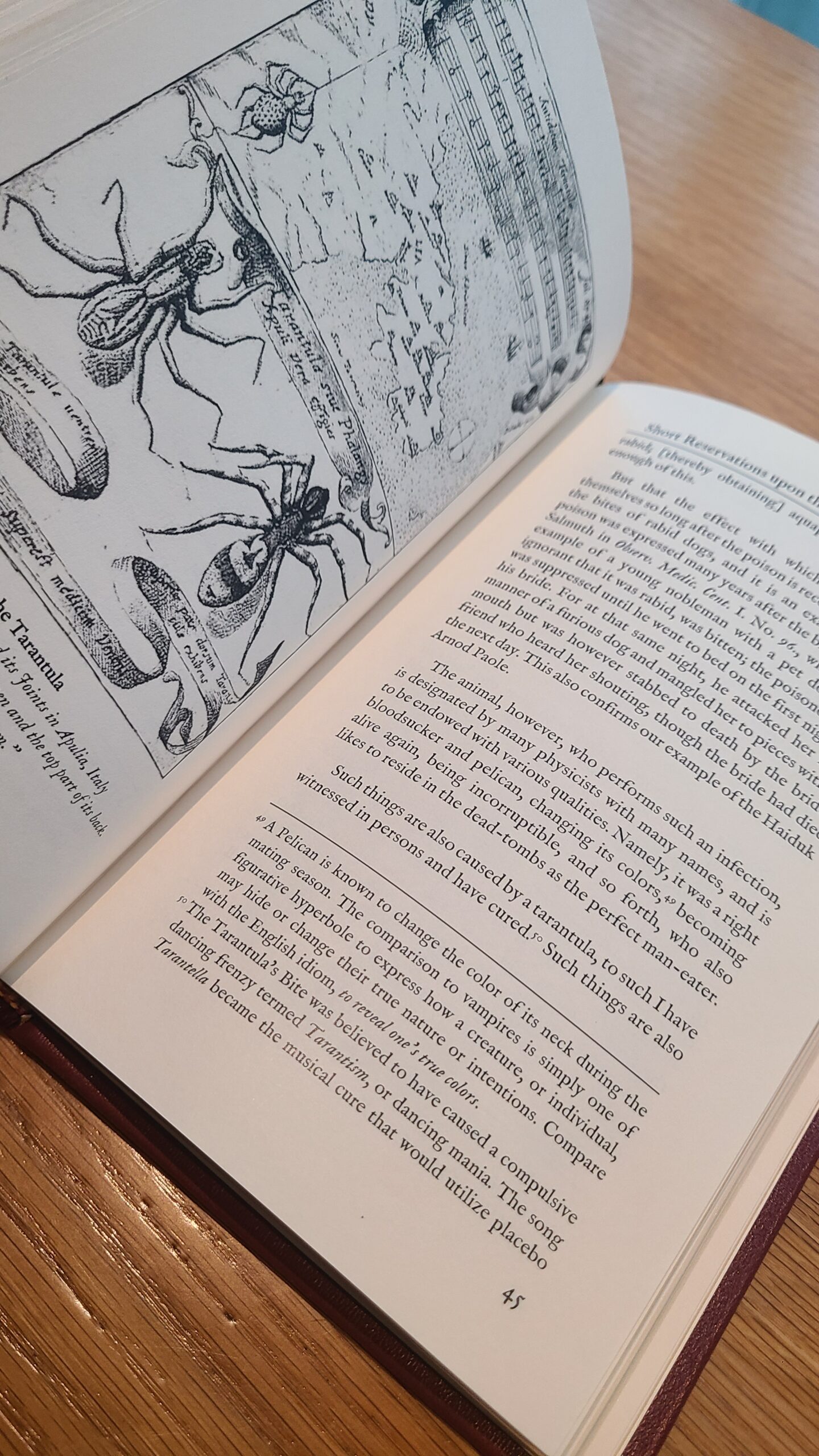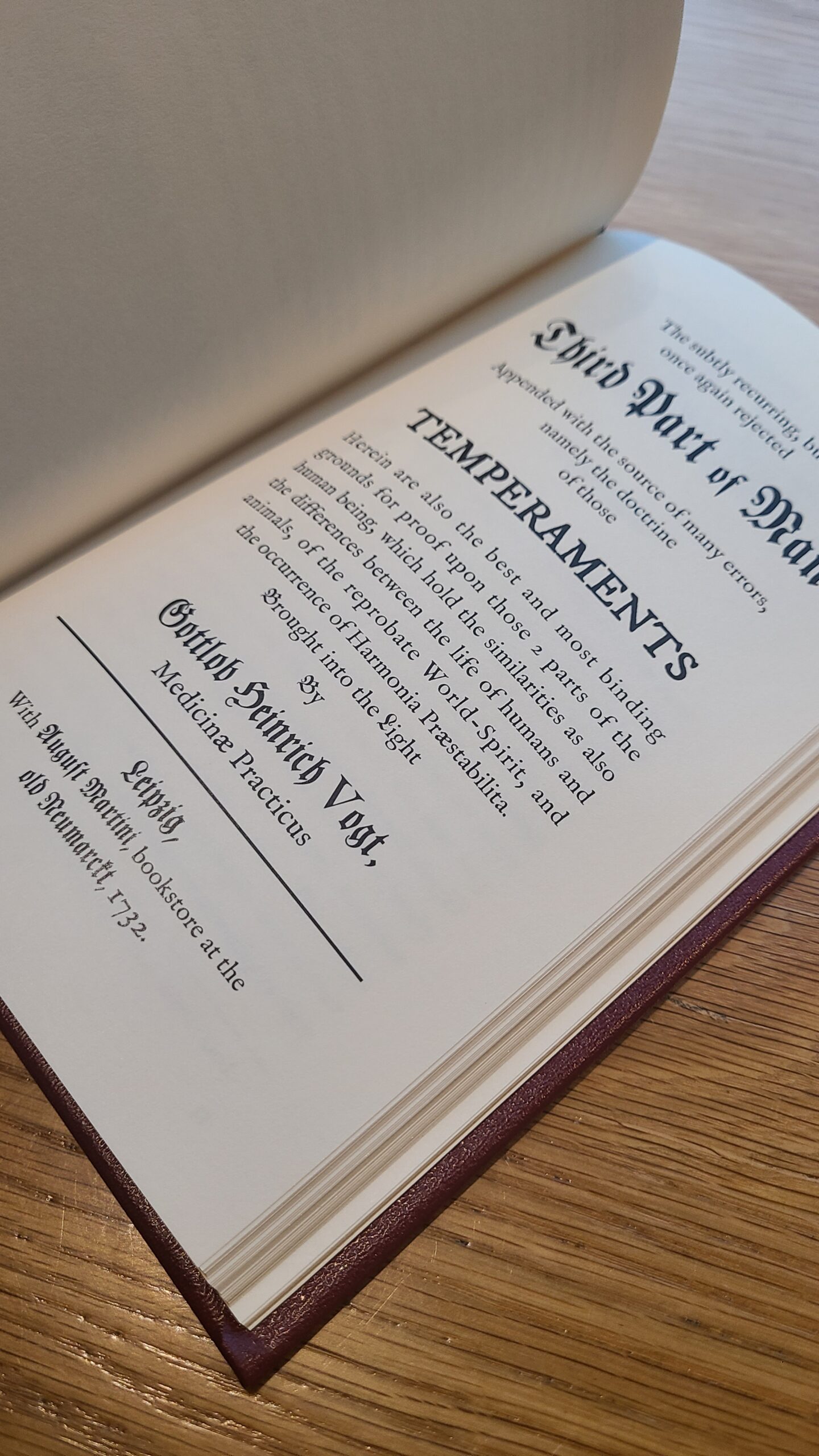The Historic Vampire Debate: Volume Alchemy (1732) Signed Leatherboud First Edition
The Historic Vampire Debate Project brings a volume of Hermetic writings compiled from 1732 that were a direct response to a case of Vampirism that became the center of controversy throughout the Holy Roman Empire. After 17 individuals suddenly died in a rural Serbian village, an Official Report from the regiments of Prince Charles Alexander had emerged, detailing the autopsies of 13 bodies that were exhumed during an inquisition over the incident. The bodies were found preserved from decay over a month after burial and the locals blamed the sudden deaths on vampirism. An academic debate began when von Kottwitz, an ensign to the Prince Alexandrian Regiments, sought answers to the mysterious phenomena detailed in the reports. Requesting medical expertise, he sent a personal letter to Dr. Michael Ettmuller, a famous Professor of Physiology at Leipzig University who was also President to the Leopoldina-Carolina Academy of Natural Curiosities. What followed would become the greatest controversy of the day. For the first time, several works that argue for and against the Hermetic perspective regarding the phenomena observed on the bodies of the incorruptible deceased have been compiled and translated into English for the enjoyment of a modern contemporary audience.
The Alchemy volume was expanded to include:
- Anonymous – Official and Cumbersome Relation upon those Vampires or People-Suckers, which have emerged in this and previous years in the Kingdom of Servia. In addition to its reasoning, a Handwritten Letter from an Officer of the Prince Alexandrian Regiments of Medvedia in Serbia, to a Famous Doctor of the University of Leipzig. (1732)
- Gottlob Vogt’s Short Reservations upon those Official Relations on account of Vampires or People and Cattle Suckers, etc. (1732)
- Gottlob Vogt’s The subtly recurring but once again rejected Third Part of Man, appended with a doctrine of those Temperaments. etc. (1732)
- Remarquable Cureiuse Briefe. Issue 137, No. 121. (1732)
- Christoph Demelio – Philosophical Experiment, or whether the Strange Occurrence of the Blood-Sucker in Lower Hungary,which occurred in 1732, could be derived from the principles of nature , in particular from the Sympathy of Natural Things and from the Three Faculties of Man, etc. (1732)
- Imperial Correspondence from the Austrian State Archives in Vienna, dated December 12, 1731 to August 5, 1732.
The Introduction provides a brief history of alchemy, the temperaments, and how the teachings of Paracelsus were attributed to the case of vampirism in the texts before us. An in depth analysis is then made over the Hermetic perspective and the early medical refutations regarding the inquisition of sudden death blamed on vampirism. The Paracelsian view of the body being a material vessel for which the spirit and soul are bound is perfectly represented in the chemical process of sublimation; in which the metaphoric spirit is released from its earthly impurities when a solid bypasses the liquid and converts directly to a vaporous spirit as it leaves behind the impure and useless remains so-called Caput Mortem. It can further be seen from these works that a controversy existed as to whether the body of man held two (body and soul) or three parts (body, soul, and spirit), and whether the spirits of the dead could truly affect the living with such detrimental effects or if these were merely symptoms of varying diseases. To this, Gottlob Vogt breaks down and refutes the Paracelcian perspective, establishes the error of the so-called Third Part of Man, then provides the medicinal history of the temperaments in which the the chemical imbalance of Mercury, Sulphur, and Salt may affect the moral judgements and health of man. Many archival documents regarding the administrative reports and correspondence that came from the inquisition of the Serbian plague are further presented in the final appendix.
